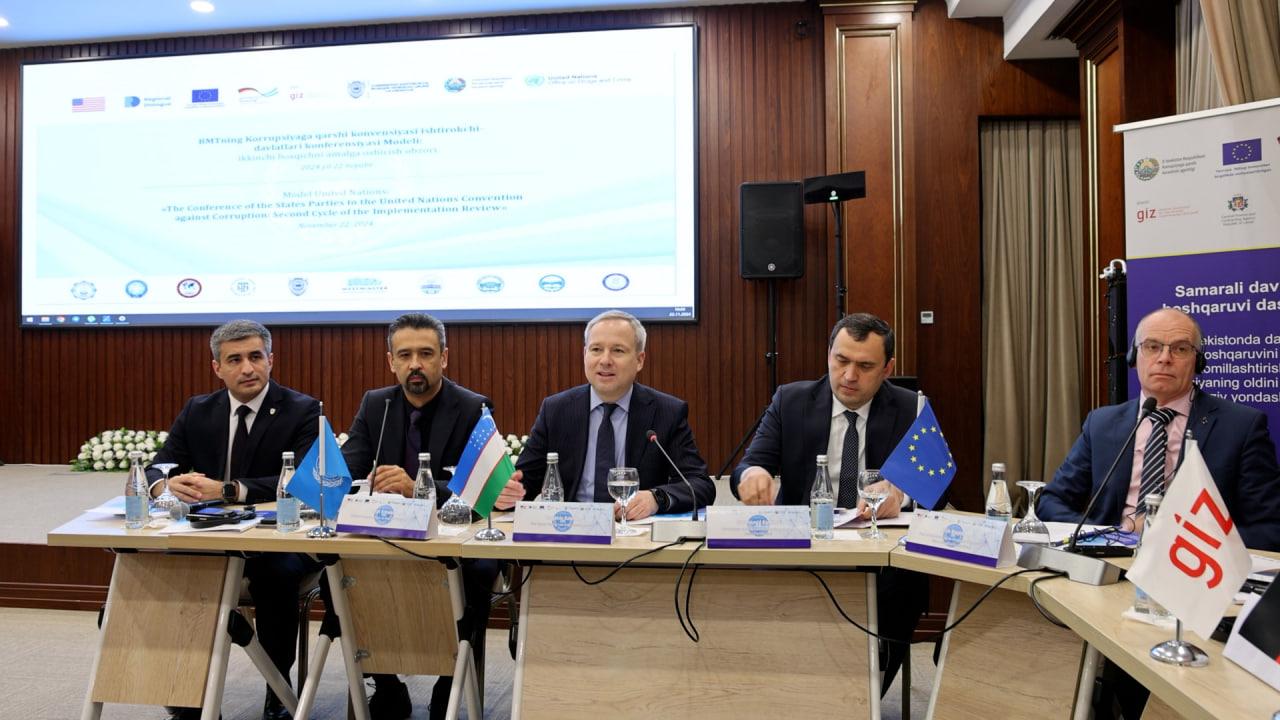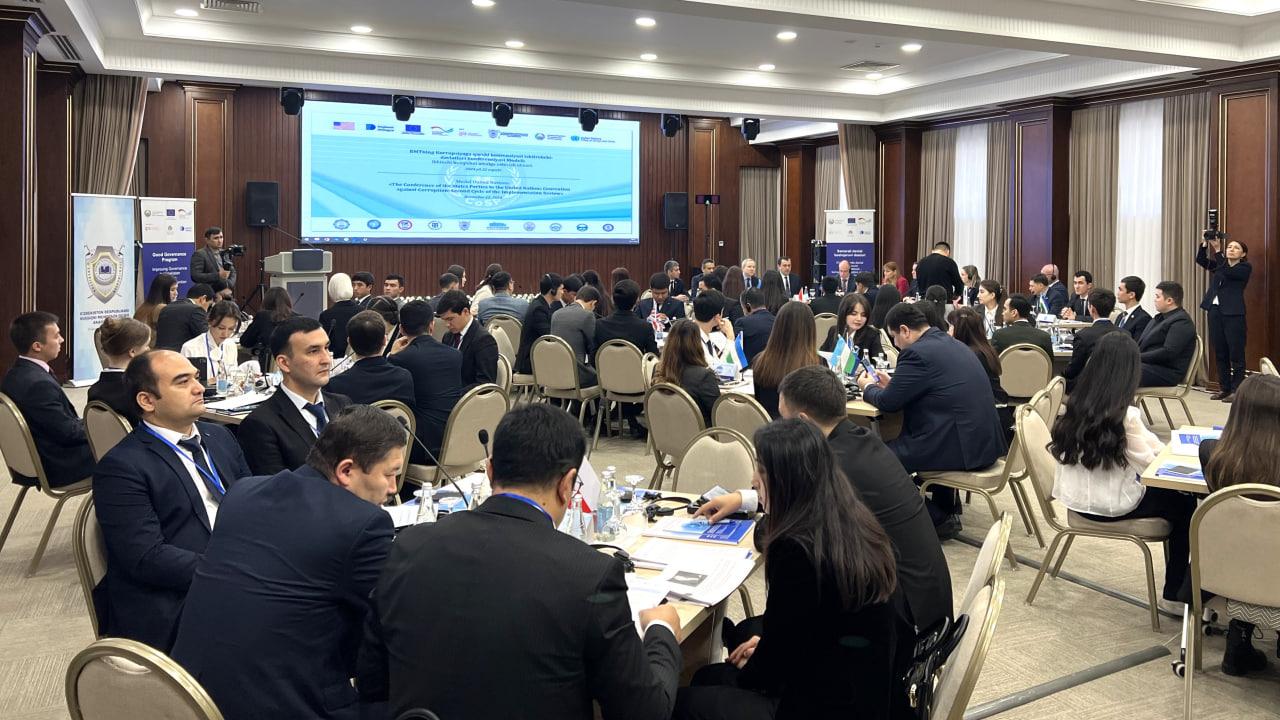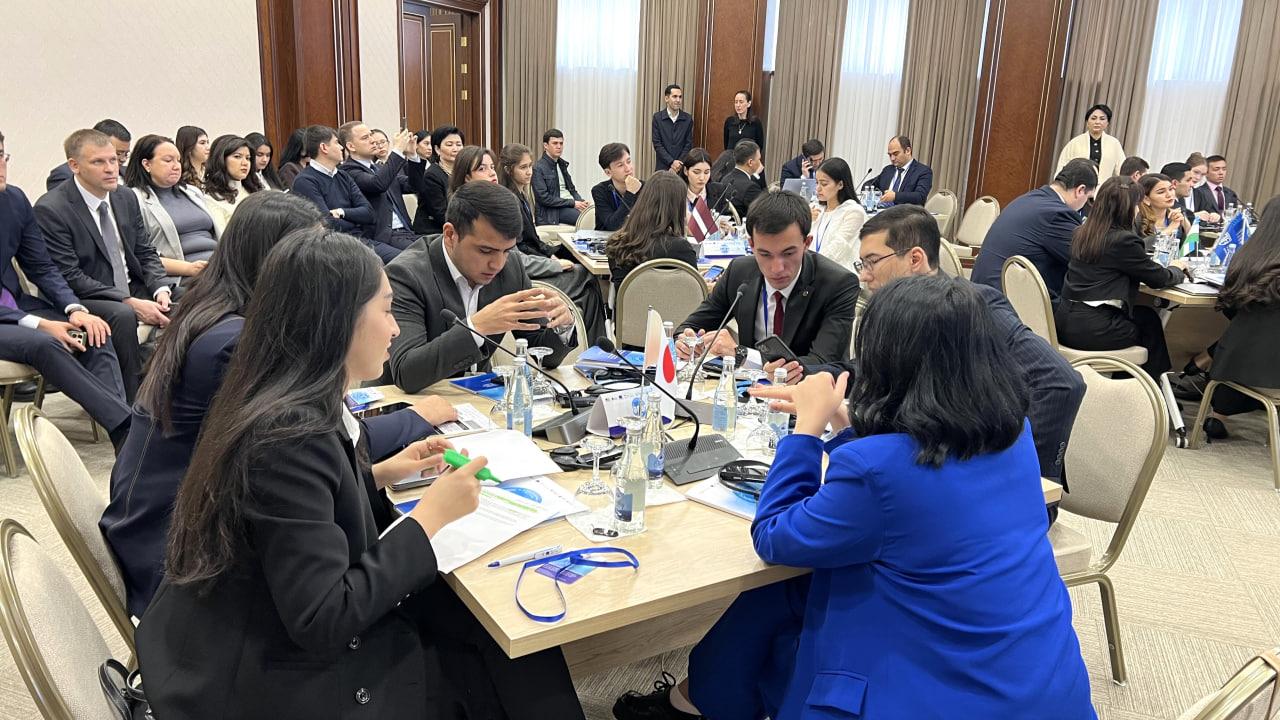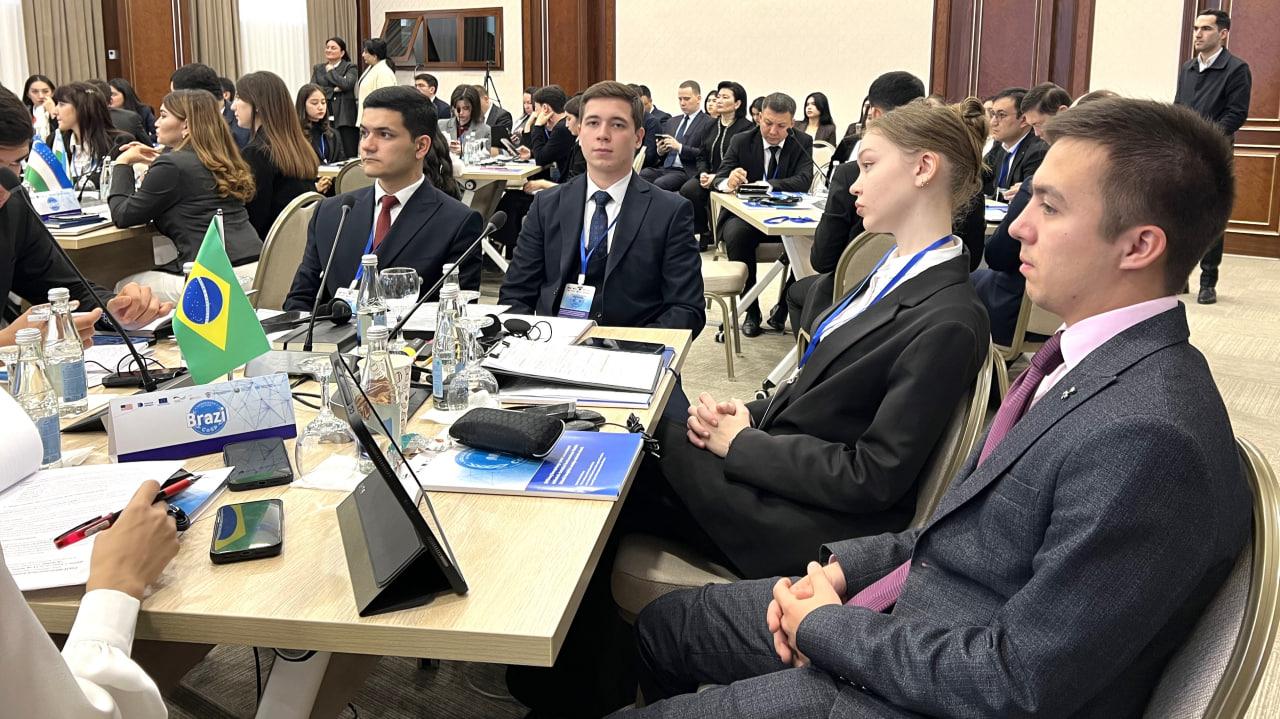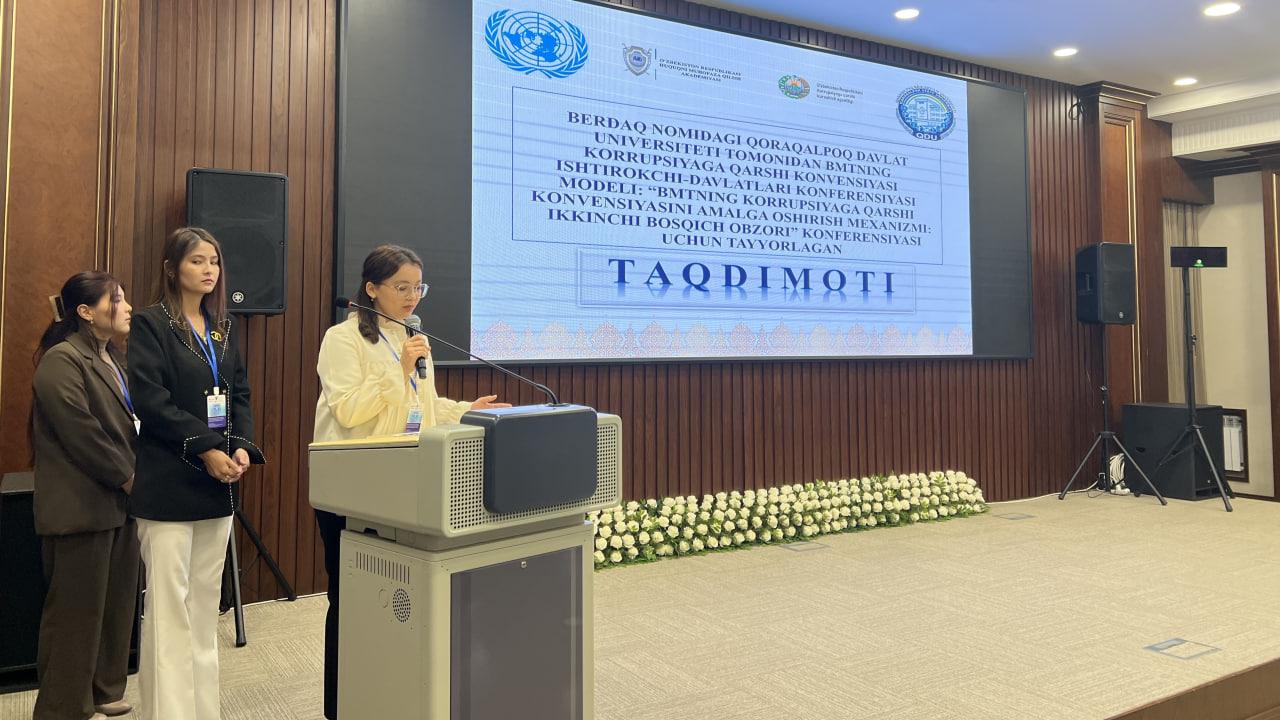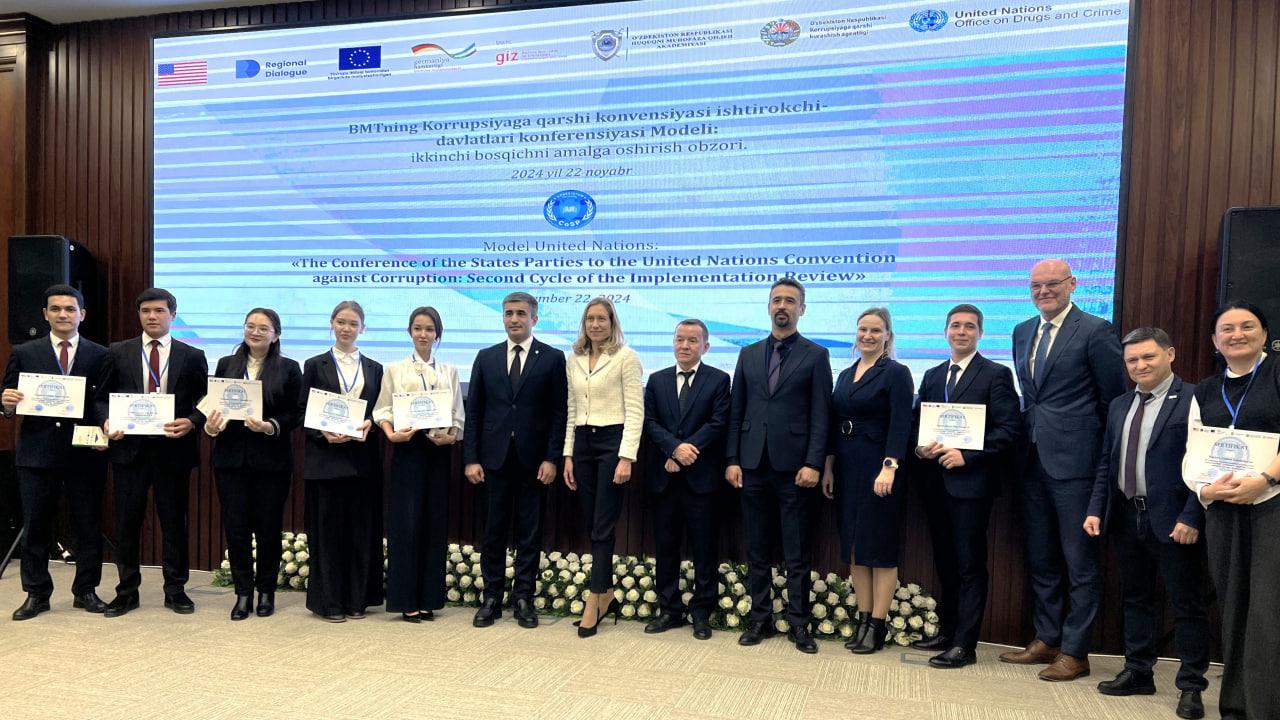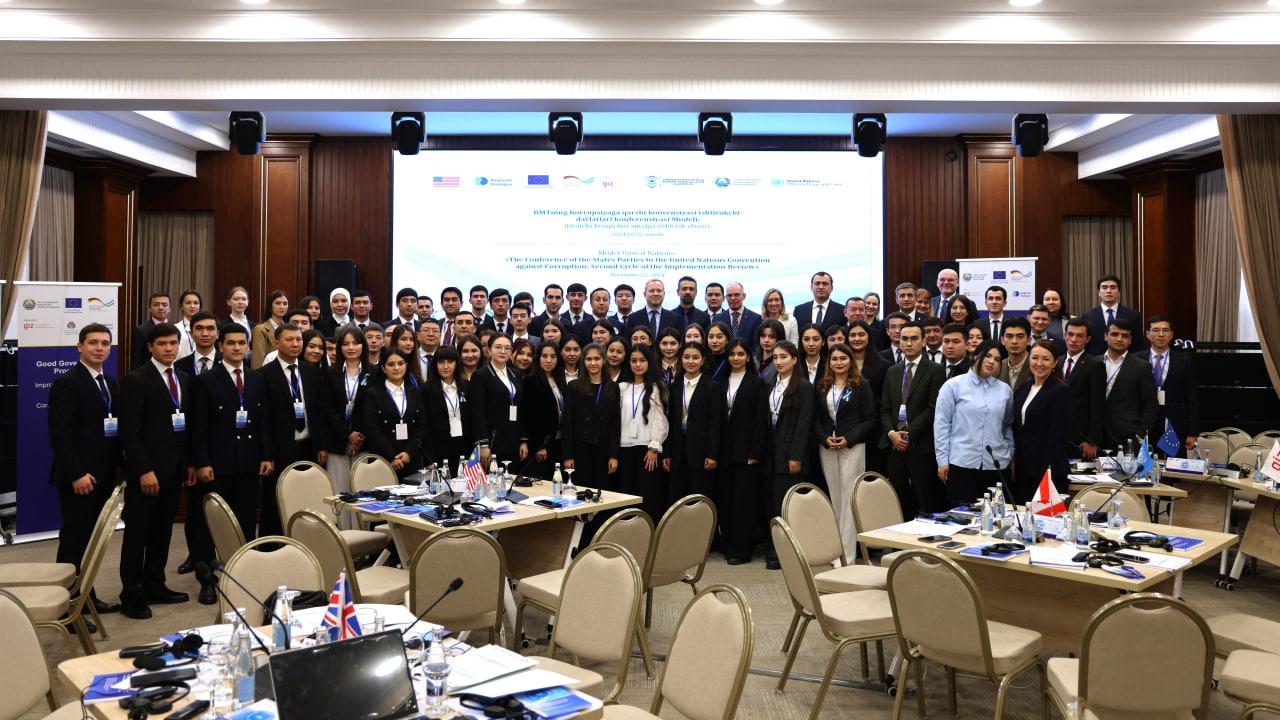Model Conference of the UN Convention Against Corruption Organized
As part of the second day of the international conference at the Law Enforcement Academy, a Model Conference of the States Parties to the UN Convention Against Corruption was organized with the participation of law students from universities across the country. The theme of the conference was “Mechanism for Implementing the UN Convention Against Corruption: Second Cycle of Review”.
This event, held annually as part of a series of activities dedicated to the International Anti-Corruption Day, was jointly organized by the Anti-Corruption Agency, the United Nations Office on Drugs and Crime (UNODC), “the Regional Dialogue” NGO, and the German Society for International Cooperation (GIZ).
Students from the following institutions participated in the event: State University, International Westminster University in Tashkent, the University of World Economy and Diplomacy, Samarkand State University, Tashkent State University of Law, the Higher School of Judges under the Supreme Judicial Council, National University of Uzbekistan, Termez State University, Namangan State University, and the Law Enforcement Academy.
Participants demonstrated their knowledge during the two-stage Model UN Conference, acting as mock delegates of the States Parties to the Convention Against Corruption.
In the first stage, mock delegates representing countries such as Brazil, Malaysia, Spain, Latvia, the United Kingdom, Canada, Kazakhstan, the Czech Republic, Japan, and Uzbekistan delivered reports on the application of Article 12 of the UN Convention in their respective national legislations.
According to Article 12 of the Convention, each state is obligated to promote integrity standards in the private sector, strengthen cooperation with law enforcement agencies, and prevent corruption and conflicts of interest when interacting with public institutions.
During the second stage, teams from educational institutions presented proposals to improve Uzbekistan’s national legislation aimed at increasing the private sector’s engagement in combating corruption, based on the experiences of the countries they represented.
The reports and proposals of the mock delegates were evaluated by experts in the field of anti-corruption from the Anti-Corruption Agency, UNODC, “the Regional Dialogue” NGO, and CERT International (Slovakia).
This event enabled students and trainees from educational institutions to deepen their knowledge of combating corruption in the private sector, understand the provisions of the UN Convention Against Corruption, and learn about best practices from other countries. It also helped them develop skills for applying their acquired knowledge.

